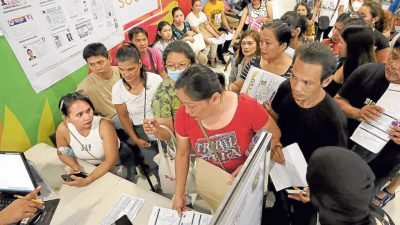By Junex Doronio
MANILA — Feeling the burden of ordinary citizens whose loved ones are afflicted with kidney illness, House Deputy Majority Leader and ACT-CIS Party-list Rep. Erwin T. Tulfo, along with four other lawmakers, on Tuesday (02 July 2024) filed a resolution urging the adoption and expanded Philippine Health Insurance Corp. (PhilHealth) coverage of an advanced dialysis machine — the automated peritoneal dialysis (APD), to improve the quality of life for Chronic Kidney Disease (CKD) patients.
House Resolution No. 1789 was filed by Tulfo and his colleagues from the ACT-CIS Party-list — Reps. Edvic Yap and Jocelyn Tulfo; Benguet Rep. Eric Yap; and Quezon City 2nd District Rep. Ralph Wendel Tulfo.
“Itong automated peritoneal dialysis (APD) ang siguradong magpapagaan sa buhay ng milyon-milyon nating kababayan na nagda-dialysis lalo na yung mga pasyente na nagta-trabaho. Pwedeng-pwede pa ring mag-trabaho ang mga pasyente, maari kasi itong gamitin kahit nasa bahay lamang ang pasyente at kahit natutulog lang,” Tulfo said in a statement.
He added: “Hindi na kailangan ng dialysis patient na mag-absent sa trabaho at gumastos ng pamasahe papunta sa ospital o dialysis center para sa kanyang linggo-linggong dialysis.”
Tulfo also noted that adding that the more efficient APDs were also being used in other countries.
In the resolution, the lawmakers stated that CKD is a growing public health concern in the Philippines, affecting millions of Filipinos and significantly impacting their quality of life, and dialysis treatment, specifically hemodialysis and peritoneal dialysis (PD), is a life-saving intervention for patients with advanced CKD.
It said peritoneal dialysis offers several advantages over hemodialysis, including greater flexibility, increased patient independence, and the potential for improved cardiovascular health.
“Automated peritoneal dialysis (APD) is a further advancement in PD technology, utilizing automated machines to perform exchanges throughout the night while the patient sleeps, reducing treatment burden and improving sleep quality,” the resolution said.
Studies have also shown that APD can significantly improve patient outcomes compared to manual PD, including reduced peritonitis rates, better blood sugar control, and enhanced overall well-being.
The lawmakers said there is no current PhilHealth coverage for APD compared to manual PD and hemodialysis, creating a financial barrier for patients who could benefit most from this technology.
“Expanding PhilHealth coverage for APD would ensure greater access to this life-changing treatment, promoting equity and reducing the financial burden on patients and their families,” the resolution stated.
“Increased utilization of APD would not only benefit patients but also potentially alleviate the strain on healthcare facilities currently overwhelmed by high volumes of hemodialysis patients,” it added.
Tulfo said they strongly urged the Department of Health (DOH) to develop and implement a national program to promote the adoption and wider use of APD as a treatment option for CKD patients in the Philippines.
He also asked PhilHealth to review and expand the coverage for APD to ensure it is equivalent to the coverage provided for hemodialysis.
(el Amigo/mnm)







